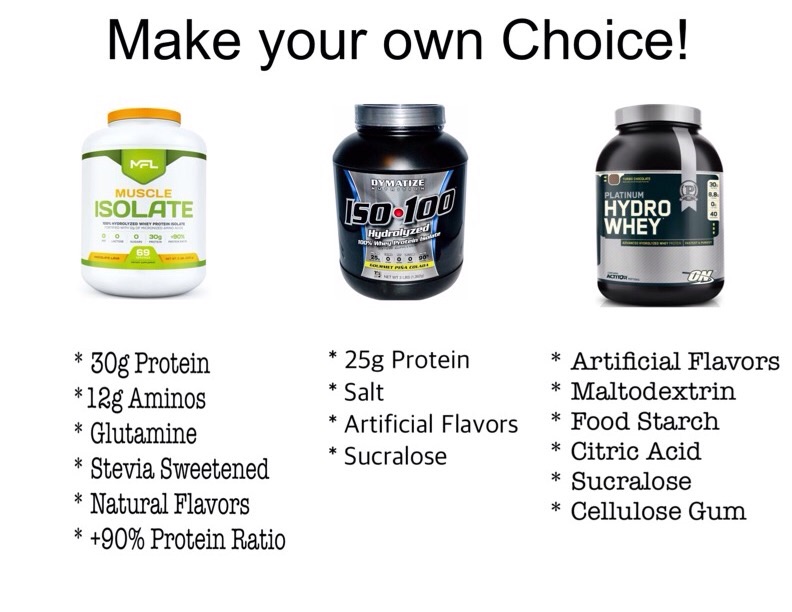Protein Powders – Good vs. Bad – What’s the Difference?

What you need to know:
Protein Powders – Good vs. Bad – What’s the Difference?
It seems there are a million different protein powders out there, so how do you know which one is the best for you? It all comes down to the type of protein used, how it’s made, and the other ingredients in the protein powder. Many poor-quality protein powders have a lot of fillers and other cheap ingredients that affects the overall quality and bioavailability of the protein. It is important the protein is bioavailable and easily digested because that means you get more bang for your buck, and you’ll get the most amount of protein to the muscles, which is what you want!
The building blocks of muscles are protein and amino acids, so it’s important to have enough protein during the day for optimal muscle-building. A general recommendation is to intake 1 gram of protein per pound of bodyweight. However, keep in mind a lot of protein also comes from food when looking at your overall daily protein intake.
Here is a breakdown of the different kinds of protein powders and how they compare to each other:
Whey Protein Concentrate (WPC):
* Is the cheapest whey protein
* Is denatured – the beneficial protein structures are destroyed
* Contains higher amounts of cholesterol and is oxidized to a large degree
Hydrolyzed Whey Protein:
* Has hypoallergenic properties
* Is partially predigested – the degrees of predigestion vary
* The amino acids are more readily available, and one of them is known to have excitotoxic properties (glutamate).
* May play a role in excitotoxin-induced brain damage
Ion-exchange Whey Protein Isolate (ISOPURE)
* Has low amounts of lactose, fats and cholesterol
* Many of the native whey protein structures are destroyed!!
* It is denatured to a large degree
* Beta-lactoglobulin globulin is present in higher quantities, which may lead to allergies
Micro filtered Whey Protein Isolate (Muscle Foods Labs, Royal Sports Nutrition, Nar Labs) – the most superior protein source!!
* Has low, if any amount of lactose, fats and cholesterol
* Retains its native proteins intact
* Is twice as expensive as WPC and ion-exchange proteins
* Promotes muscle repair and growth
* Strengthens the immune function
* Has detoxifying and antioxidant properties
Now that you know the in’s and out’s of what to look out for in protein powders, which would you choose? Check out the info graphic below to make your own choice!







